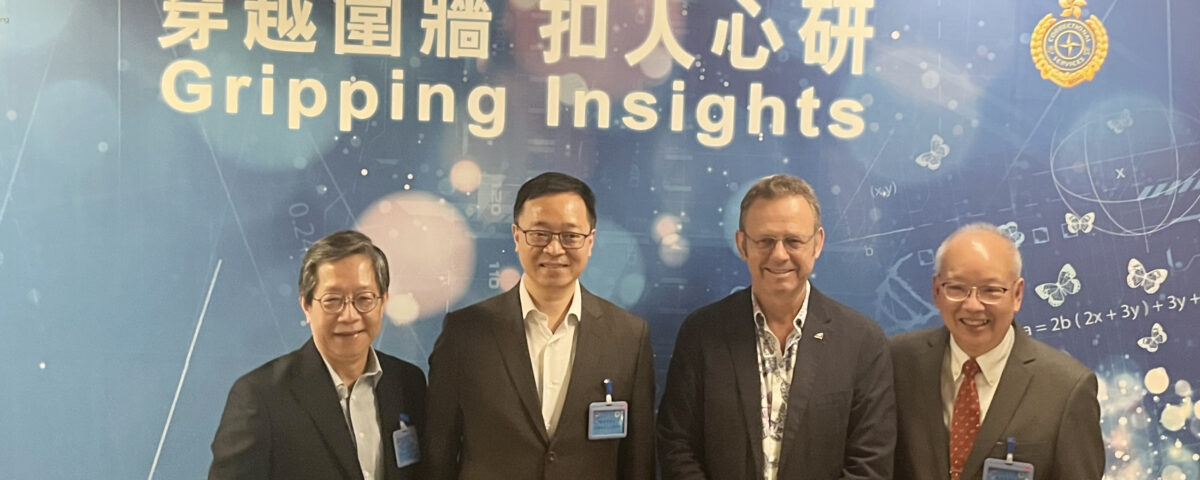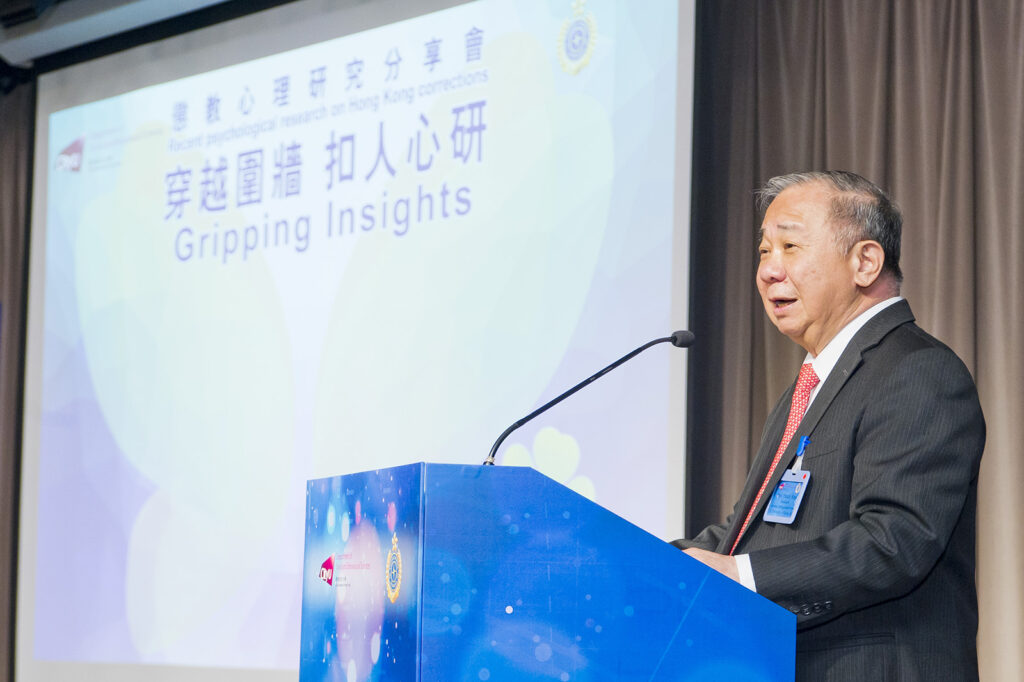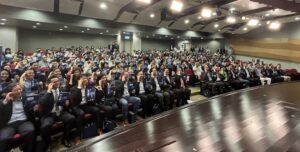
The Moral Hazards of Being Beautiful
10 June 2023
Storytelling Reduces Aggression and Bullying in Young Schoolchildren
20 June 2023Collaboration between Corrections and Psychology Blossoms at a Sharing Forum


Prof Chan Chi-hou(first left), Prof Richard M Walker (second left), Prof Samuel Ho (first right), and Mr Wong Kwok-hing (second right) gathered for a photo at the reception.
The celebrated poet Oscar WILDE once measured his time behind bars by throbs of pain, depicting the harrowing experience shared by many incarcerated individuals. But today, amidst the darkness, a ray of hope shines through. The partnership between Hong Kong Correctional Services Department (CSD) and Department of Social and Behavioural Sciences (SS), City University of Hong Kong (CityU) has been working to bring solace and healing to those in custody.
SS and CSD have joined forces to gain a deeper understanding of criminal behaviours and effective ways to promote the well-being and rehabilitation of persons-in-custody (PICs). On 30 May 2023, they co-organised a sharing forum titled “Gripping Insights: Recent psychological research on Hong Kong corrections”; over 250 scholars, students, and professionals in correctional services joined the event.
Throughout the event, one theme arose that resonated with all in attendance: the significance of building bridges between corrections and psychology. CSD’s latest book “Gripping Insights” was introduced in the forum, offering a wealth of professional knowledge and wisdom gleaned from years of clinical practice and research conducted by clinical psychologists at CSD. The book covers an array of topics in the criminal justice system, including intervention for sexual offending and virtual reality technology in psychological treatment. It promised to be a treasure trove of empirical studies, research findings, and practical examples of helping PICs with different profiles.
In the opening remarks, Professor Freddy BOEY Yin-chiang, President of CityU, described the collaboration between SS and CSD as a testament to the relevance of academic research. He was particularly impressed by the department’s commitment to the community. “Academia should stand in the global world while having a foot on the local ground,” he highlighted community engagement as a new research direction.
Mr WONG Kwok-hing, Commissioner of Correctional Services, also delivered an opening address, affirming the decades of effort CSD has devoted to conducting evidence-based research. He noted that the Rehabilitation Division, which has been in operation for 25 years, has been at the forefront of this endeavour, combining scientific theories with clinical practice to improve the quality and efficiency of its services.
Professor Richard M WALKER, Dean of the College of Liberal Arts and Social Sciences, and Professor Samuel HO Mun-yin, Head of SS, were also in attendance.
As the forum continued, attendees were in for a treat as they engaged in a professional dialogue with an impressive line-up of discussants, including Prof Samuel Ho, two Senior Clinical Psychologists from CSD, Dr Judy HUI Shuk-han and Dr Vivian MAK Wai-ming, as well as student representatives from CityU, The Chinese University of Hong Kong and The University of Hong Kong. They explored the book’s essence and implications for promoting rehabilitation and well-being in the correctional system. The conversation delved into the values of psychological services and how they can be integrated with clinical practices to drive positive outcomes.

President Freddy Boey Yin-chiang officiated the event and delivered an opening address.

The discussants threw light on rehabilitation and well-being of persons-in-custody.
The forum proceeded to a screening of videos featuring successful stories of PICs and rehabilitated persons. They demonstrated the transformative impact of psychological services, showcasing first-hand accounts of how clinical practices, psychological research, and NGO collaborations have helped individuals tackle and overcome their challenges.
As the forum drew to a close, many thought-provoking questions from the floor further enriched the insights into corrections and psychology. Attendees hence left with a newfound appreciation of the synergy that recognises the multifaceted nature of serving time. Together, correctional services practitioners and psychology scholars may cultivate a new vision for rehabilitation’s future—one rooted in empathy, compassion, and the belief that everyone deserves a second chance.

